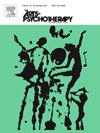Ambiguous loss and disenfranchised grief in formal caregivers of people with dementia: Effectiveness of a training intervention with psychodrama
Abstract
Formal caregivers of people with dementia may experience ambiguous loss due to the psychological loss of care recipients before their physical death. They may also experience disenfranchised grief when other people fail to acknowledge their losses. Since the number of studies addressing these topics is fairly restricted, this research investigates the phenomena of ambiguous loss and disenfranchised grief as observed within the staff of a care facility for people with dementia. Moreover, this research evaluates the impact of a psychodrama training course on the processing of such griefs. A mixed-method research design was used. For the quantitative section, the following variables were examined: caregiver grief, well-being, and burnout levels. Fifty-nine health professionals took part in the study. Before and after the psychodrama intervention, participants were interviewed and filled out questionnaires for longitudinal research. The training intervention has resulted in a reduction in formal caregiver ambiguous loss and an improvement of the well-being of participants, as well as in the acquisition of awareness and skills regarding grief, greater validation of one's grief and better communication skills. The training intervention with psychodrama seems to help manage loss experiences in staff working with people with dementia.

 求助内容:
求助内容: 应助结果提醒方式:
应助结果提醒方式:


